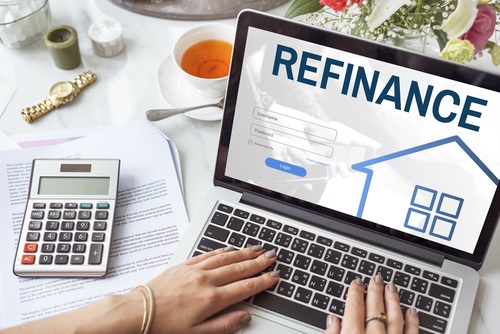
How to Prepare for a Successful Move to Denver: a Step-by-Step Guide
Moving to a new city can be both exciting and overwhelming. Denver, known for its vibrant culture, stunning natural beauty, and thriving job market, is

The real estate market is very dynamic. You might be considering refinancing to ease the burden of a mortgage when the economy takes a turn, and you realize you have a rare gem everyone wants.
Listing the house might suddenly seem very lucrative, but you don’t want to offend your lender, who has been there for you consistently.
Apart from not meeting the bank’s expectations, it is quite rare to benefit from selling a property that has already been refinanced.
The cost of closing on the refinance alone can push the figure you require to make a profit after paying off the loan way above the house’s market value.
There is no law against selling your house after refinancing, so you can proceed, provided you don’t breach the contract with your lender.
This article looks at why you would consider selling a refinanced house, how to do it successfully and ways to ensure you don’t leave money on the table while at it.
A house appraisal is often a requirement for a refinance loan. The appraisal results are shared with the borrower, and you might discover your house’s value is significantly higher than you thought.
The possibility of making a killing as homeowners might entice you to sell the house, especially if you no longer need to live there (maybe everyone grew up and moved out so you can fit in a smaller space and want to look for a new home).
Every once in a while, the demand for housing in a particular region surpasses the number of houses available for sale. Many social and economic dynamics cause this situation.
A town whose school system has recently been highly rated, for instance, will draw interest from families with school-going children who wish to settle there, making it harder to find a new home.
Property values will naturally skyrocket, and it is usually a good time to sell (what is called a sellers’ market in the realtor’s world). The seller suddenly gains pricing power because they can draw multiple bids to their property and will often get more than their asking price as buyers try to outbid each other.
This is the ideal market to make a profit above both refinancing costs and the closing costs of the sale. You might not have to wait to break even from what you incurred during refinancing to earn a profit from selling the house in a sellers’ market.
There are instances where the end game will be selling the house from the onset, even as you seek mortgage loan refinancing.
The house might be in a state that needs major repairs, and you realize that listing it as is will significantly lower the starting offers from buyers.
Deal-hungry buyers will exaggerate their discount request for every issue the home inspector identifies, so you opt to have them fixed first.
The problem with putting off a laundry list of repairs for a while is you might not have the cash to pay for the repairs and cover the closing costs of the sale when you need to. You can tap into the home’s equity to get funds for the repairs by taking a cash out refinance. It has a lower interest than other loan types.
The lender shouldn’t have a problem with the arrangement if the property value can support the additional burden and your credit history is good. The amount you need for the renovations will be withdrawn from your equity, loaded onto your mortgage principal, and handed to you as cash a few days after closing the refinancing.
Soon after the repairs are done, you should list the house for sale so that viewings can be done while everything is still in good condition. Make sure no clauses in the refinancing agreement prevent you from selling the house if you plan to sell it after repairs.
One of the greatest motivations for mortgage refinancing is usually to ease the loan’s burden on the borrower. You can shorten the mortgage term to reduce the amount of interest paid, reduce the interest rate and, by extension, the expected monthly repayments or consolidate your loans into one mortgage with a favorable interest rate.
If you lost your job or had to take a significant pay cut, you might still struggle to meet the monthly repayments even after refinancing. You might opt to sell the house if the sale covers the outstanding mortgage and closing expenses to remain debt-free.
At the point of refinancing, the lender usually gives the borrower the option of switching between an adjustable-rate mortgage (ARM) and a fixed-rate loan. In an ARM agreement, the interest varies significantly from one month to the other, while the fixed-rate arrangement has a constant interest which keeps monthly repayments constant.
If the interest rate projection is downward, it is better to refinance the mortgage at an adjustable rate so you can be relieved in the future.
When the interest rates are at their lowest, the only logical expectation is they will rise, at least back to their median. In such a situation, you should choose a fixed-rate refinancing to keep enjoying the favorable mortgage rate.
If you signed up for an ARM refinancing and interest rates keep going up, you might be unable to keep up with the mortgage’s demand. Selling the property at this point can be wise, especially for a cash buyer who will not be adversely affected by the rising interest rates.
They buy the house in whatever condition it’s in, and closing is fast and convenient so you can pay off the mortgage before it starts falling into arrears.


You can sell the house anytime after mortgage refinancing as long as there are no limitations imposed by the refinancing agreement barring you from selling it for a stipulated amount of time.
Some mortgage lenders impose restrictions on how soon you can sell the house after refinancing. The agreement might have an owner-occupancy stipulation that does not allow you to sell or rent the property for the first six months to one year after refinancing.
You will have consented to these terms by signing the agreement, so going against them will be a breach of contract, and your lender will have legal recourse against you.
Government-backed mortgages have stricter rules restricting property sales immediately after refinancing. We will use FHA mortgages to illustrate this scenario. FHA mortgages are backed by the Federal Housing Administration (FHA), a government agency under the Department of Housing and Urban Development. The FHA insures the home loan, covering the lender if you default on your loan repayment.
FHA mortgages are structured to enable as many people as possible to afford homes. They use a lower minimum credit score than private lenders, typically requiring a lower down payment, and the closing costs can also be loaded onto the home loan.
At the same time, you will not be granted an FHA mortgage to finance a second home or an investment property.
You must occupy the property within sixty days of closing and agree to live in the house as your primary residence for at least one year after closing. You will be going against the rules if you list the house before the period elapses.
Some lenders levy this fee when you pay off the entire mortgage or a portion earlier than stipulated in the agreement. These lenders use the fee to incentivize lenders to pay back the principal slowly to collect more interest over the period. They fear they may be unable to recoup their costs if you pay off the loan too early.
You should go through the fine print of the mortgage contract thoroughly to find out if there is such a clause in the first place. Ask a professional to interpret the stipulation so that you can establish its potential impact on the total costs of selling the house.
The law requires a mortgage lender to disclose such payment penalties, so you will always find it listed along with the other mortgage loan contract terms.
The penalties are usually stricter during the first few years as the mortgage lender is more at risk during this period. The earlier you want to sell the house after refinancing, the harsher the mortgage payment will be if it is applied.
You need to weigh this against the gains you anticipate from the sale to determine if it is worth it. The option of retaining the house a bit longer as you ponder never leaves the table.
Don’t pay off a house before it’s paid off! That’s the worst thing you could do with your money. If this all sounds overwhelming, don’t worry! We’ve got a solution that takes care of everything— WeBuyHousesInDenver.org is the best Denver cash home buyer. Just head over to our website and get started or Call us Today!
The closing costs on a refinance make it such that you don’t realize the savings you get from the reduced interest rates for a while after closing the refinance.
The combined application fees, appraisal, inspection and closing fees come to between three and six percent of the loan’s principal.
As much as you can legally sell the house after refinancing, you might want to hold off on selling the property until you have covered the cost of refinancing for the transaction to make economic sense.
Make sure to go through the fine print of the mortgage refinancing contract so that you don’t find yourself on the wrong side of the law.
And if you’ve finally made up your mind. WeBuyHousesInDenver.org is your solution for a cash offer. Sell your house for cash. As Denver’s number one cash home buyer, we will buy any house in any condition, so if you want a cash offer on your property, simply give us a call or fill out an online form and our team of experts will get to work quickly and smartly to help you get your house SOLD!
USEFUL RESOURCES:
Can I sell my house to my son for $1.
Can I sell my house to my business?
Can I sell my house with an open insurance claim?
Can I sell my house while in forbearance?
Can you sell a house for more than appraised value?
Can I sell my house after refinancing?
Can I Sell My House Before Paying Off the Mortgage?

WeBuyHousesinDenver.org is a cash for houses company and we are experts at buying houses in Denver and all of Colorado. Our mission is to give the people of the Mile High city the best solution to sell any house. When you sell your house to us there are:
This is how selling a house in Denver should be!
Fill out the form to get your no-obligation cash offer today.
The latest real estate news, forecasts, insight, and advice are brought to you by the leading authorities in the Denver housing market. We have ears and boots on the ground in the Mile High reporting the facts. Extensive research goes into all our articles and we gather information from trusted real estate experts, renowned local Denver housing specialists, home buyers, and more. We buy houses Denver and as accomplished professionals with a proven track record, we now want to share our experiences with you. Please enjoy!


Moving to a new city can be both exciting and overwhelming. Denver, known for its vibrant culture, stunning natural beauty, and thriving job market, is
Value add in real estate means finding ways to make a property more valuable. This can include things like renovating, improving operations, or changing how
Colorado Springs is a great location for rental property owners, but even in high-demand rental markets, selling your rental property sometimes makes financial sense. The
We’re a service-focused, home buyer that specializes in helping homeowners get rid of burdensome houses quickly. We are Colorado cash buyers who can buy your house fast with a fair all-cash offer. Imagine an instant online quote to sell as-is, without realtors and on your timeline! As a house buyer that’s what we offer. Therefore, if you need to sell your house fast and need a trusted professional home buying company look no further because we buy houses fast for cash.
We Buy Houses In Denver, 1337 Delaware St, Denver, CO 80204